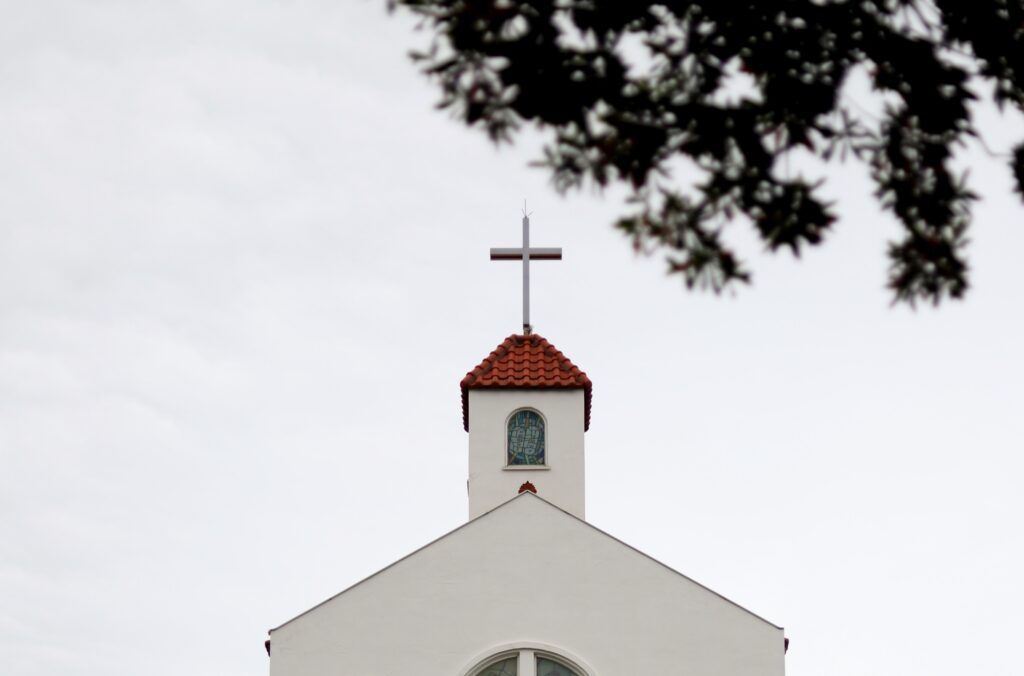Introduction
Worship is one of the central themes in the Bible. The importance of worship goes back to the Garden of Eden. Many scholars believe that Eden was a temple. Similarly, as described in Revelation, the new Jerusalem reminds us of the Most Holy Place of the temple – a perfect cube (Revelation 21:15-19, 1 Kings 6:20).
After the fall, Cain and Abel brought offerings to God in worship (Genesis 4:3-5). When Noah stepped down from the ark, he built an altar to God (Genesis 8:20). Abraham (12:7), Isaac (26:25), and Jacob (35:1-3) built altars to the Lord.
God sent Moses to deliver Israel from slavery “to offer sacrifices to the LORD” (Exodus 4:18) and to worship him (Exodus 8:1).
As God is worshipped on earth, the heavenly beings also worship him (Nehemiah 9:6, Isaiah 6:1-3, Revelation 4:9-11).
Because God is the only worthy object of worship (Mathew 4:10), he is jealous of his worship. To worship any other is to ascribe the glory due to him to another. Since God alone, as the creator of all, is worthy of all glory, honour, and power (Revelation 4:11), every worship of another is not only false; it is destructive.
But God’s jealousy for his worship is not only about the object of worship; he is also concerned about our attitude to his worship and our obedience to his laws about worship.
Put differently, God hates false worship (idolatry), deceptive/vain worship, and disobedient worship.
God hates false worship
When Israel worshipped the golden calf, God would have destroyed them except for Moses’s intercession (Exodus 32). God’s anger against his people (32:7-10) tells us everything we need to know about God’s attitude towards idolatry (false worship).
Before this event, God had commanded them to have no other gods besides him (Exodus 20:3). They must not bow down to or worship any idol because Yahweh is a jealous God, and he judges those who disobey him.
The next time Israel disobeyed God in this matter (Numbers 25), they had a taste of God’s anger against false worship. All those who “yoked themselves to the Baal of Peor” were executed, and a plague killed 24,000 Israelites.
When the generation that knew the Lord passed on after Joshua’s death, Israel turned to the Baals (Judges 2:6-15). In his anger (that word again), God “gave them into the hands of raiders who plundered them” (v. 14), and they were in great distress.
During the Monarchy, Solomon worshipped the gods of his numerous wives (to put it mildly), and the once united kingdom was divided into North and South (1 Kings 11:1-13).
The Northern kingdom would later be exiled to Assyria. What was their offence? “They worshipped other gods,” “they worshipped idols,” “they followed worthless idols, and themselves became worthless,” “they worshipped Baal,” etc. (2 Kings 17:7-20).
But the Southern Kingdom did not learn from the North. They were exiled to Babylon. Their offence? You guessed right! Same old idolatry (Jeremiah 3-4).

Why God hates false worship
Of course, God hates false worship because it attempts to give God’s glory to created things. Our God is the only God that exists (Isaiah 43:10-13; 44:6-7; 45:18), and He alone deserves our worship. He will not give his glory to another or his praise to idols (42:8).
But there is another reason why false worship angers God.
In the 2 Kings 17 passage, we see that those who follow worthless idols become worthless themselves (17:15).
Idols are the creation of human hands (Psalms 115:4). They are deaf, dumb, blind, anosmic, and lame (vv. 5-7). And those who worship and trust in such “dead” things will become like them (v. 8).
Remember that God created man as the pinnacle of his creation. He crowned us with glory and honour (Psalms 8:5) and made us rulers over the works of his hands, putting everything under our feet (8:6).
Therefore, when we consciously make our subjects our gods, we are devaluing ourselves. When what we should rule over rules over us, we have demeaned ourselves and the glory and honour God gave us. No wonder we end up becoming like the things we worship – deaf, dumb, blind, anosmic, and lame.
Consequently, God also abhors idolatry because he cares about us and is concerned about what we are doing to ourselves in that act.
We are supposed to be living for God’s glory (Isaiah 43:7) while exercising delegated dominion over his creatures on his behalf.
So when we worship idols, God is doubly angered and that anger results in judgment.
God hates deceptive (vain worship)
In Isaiah 29, God described how he would bring the hordes of nations against his City (Ariel is a pseudo name for Zion – verse 8). But God will relent on his judgments against his people and turn in judgments towards the hordes of nations (vv. 5-8).
However, Israel’s prophets are blind and drunk; they cannot see what God is planning; their eyes are sealed, their heads covered. The plans of God are sealed to them. But all of these are results of God’s judgments against them – God is the one bringing deep sleep and sealing their eyes.
Why was God doing this to them?
“These people come near to me with their mouth and honour me with their lips, but their hearts are far from me. Their worship of me is based on merely human rules they have been taught” (v. 13).
They hold on to the external forms of worship, but their hearts are not in it. They have no regard for the holiness and glory of God; worship for them was a routine, an external compliance to rules. And God promised to judge them for their deceptive worship (vv. 14-21).
It was so bad that God described his own people as Sodom and Gomorrah (Isaiah 1:9) because of this deceptive and vain worship. They bring a litany of sacrifices and offerings (1:11-13); they keep a date with all the New Moons, Sabbaths, and feast days (1:13-14); they even pray, lifting up their hands (1:15).
Despite all of these, their hands were full of blood (1:15). While they lifted hands in prayers, brought offerings, and kept the New Moons, Sabbaths and feast days, they were full of evils deeds, wrongs, and injustices (1:16-18).
When it comes to the externals of worship, they crossed the ‘ts’ and dotted the ‘is.’ But there was no inner transformation, no commitment to obeying God’s laws – loving him and their neighbours. For this vain worship, God threatened destruction (1:20) unless there is repentance.
The people took this external religion without inner transformation to its apex in Jeremiah 7. God was rebuking them for their sins and threatening them with exile, but they were nonchalant. Why? As long as the temple of God is with us, we are safe, they thought (7:4). They felt they could continue to do detestable things and be spared as long as the temple was still standing. They saw the temple as a cloak for their unrighteousness, the hiding place for their evil practices.
A chapter before this, God had already told them he was uninterested in the fact that they brought incense to the temple from Sheba, sweet calamus from a distant land, and offered burnt offerings and other sacrifices (Jeremiah 6:20). They were doing this while they refused to listen to God’s words and rejected his law (6:19). God promised to judge them for this deceptive worship (6:21-30)
In Micah 6, God brought a case against his people: despite all he had done for them in the Exodus to the Promised Land, they did not obey him (6:1-5).
What then is the appropriate response to such a covenant lawsuit? Thousands of rams? Ten thousands rivers of oil? Offering of their firstborns?
God does not have an interest in all of those. The externals won’t cut it; what he requires is “to act justly and to love mercy and to walk humbly with your God” (6:8). In the words of Samuel, “To obey is better than sacrifice, and to heed is better than the fat of rams” (1 Samuel 15:22).
God hates external formalities devoid of a commitment to love and obey him. Such false and deceptive worship bring his judgments.
God hates disobedient worship
The prophet Malachi confronted the postexilic people with the blemished sacrifices they were offering to God.
God had commanded that the sacrifices of his people be without blemish (Leviticus 22:17-33). The unblemished sacrifices were a type of Christ, the sinless Lamb of God who will truly, fully, and finally deal with sin (Hebrews 9:14, 1 Peter 1:19).
But Israel and their priests disregarded God’s law and offered defiled food, blind, lame, and diseased animals on his altar (Malachi 1:7-8), animals they could not have given as a gift to their governor. Such covenant unfaithfulness brings a covenant curse (1:14); God will honour his name (1:11).
The Bible describes Eli’s sons as scoundrels, who had no regard for God (1 Samuel 2:12).
According to Leviticus 7:29-34, they were to get their portion of the peace offering by taking a three-pronged fork and plunge it into the pan/cauldron/kettle/pot while the meat was being boiled. And this was after the burning of the fat.
Eli’s sons disregarded these instructions: they took their portion before the fat was burned and before the meat was boiled (1 Samuel 2:12-16). God had clear instructions for worship, and they disregarded them. God judged them, and they died at the Philistines’ hands (1 Samuel 4:10-11).
Like Eli, Aaron’s sons also disobeyed God’s worship instructions. “They offered unauthorized fire before the LORD, contrary to his command” (Leviticus 10:1). They most likely burned their incense with common fire instead of fire from the altar, as required by Leviticus 9:24 and 16:12.
God acted swiftly in anger and consumed them with fire from his presence. God will not take disobedient worship.
Just like idolatry, deceptive and disobedient worship dishonour God’s name. To disobey God or attempt to deceive him is evidence that we have little regard for his name.

Honouring God in worship
We cannot dismiss all the above by calling it “old covenant.” God killed Ananias and Sapphira in Acts (Acts 5), and people in Corinth who ate Jesus’ body and blood in an unworthy manner fell sick, became weak, and died (1 Corinthians 11:30). And the God of the new covenant is a consuming fire (Hebrews 12:29).
However, irrespective of Acts 5 and 1 Corinthians 11, as believers, our concern should be doing God’s will primarily out of love for him, his honour and his glory.
If false, deceptive, and disobedient worship dishonour God, we should hate it, flee from it, and repent of it. We should seek the true, genuine, and obedient worship that honours and glorifies God because we love him and want to glorify him.
That said, the Bible’s threats are also a means of grace to call us to repentance.
False worship
The NT contains warnings against idolatry. Idolaters do not inherit the kingdom of God (1 Corinthians 6:9). They are part of those who will be outside the new Jerusalem, consigned to the fiery lake of burning sulphur (Revelation 21:8).
Idolatry is a fruit of the flesh (Galatians 5:20), and the wrath of God is upon all those who worship created things instead of the creator (Romans 1:18-23).
This idolatry goes beyond bowing down to images of gold, clay, or silver. Paul taught that covetousness is idolatry (Colossians 3:5). Therefore, idolatry is the worship of anything (physical or non-physical) that is not God – placing anything in the place of honour and glory that belongs to God alone as creator (the de-Godding of God as D.A. Carson loves to say). We do worship money, health, sex, fame, and people, among others.
Let’s destroy all our idols and then heed John’s appeal to keep ourselves from idols (1 John 5:21). Let’s give God the honour and glory due only to his name by destroying every idol and refusing to create new ones. The idols of money, health, sex, fame, people, etc., must be burnt down to ashes.
In addition to destroying the idols, let’s destroy the altars and sacred stones (Deuteronomy 12:3). Israel often made the mistake of destroying idols without destroying the altars, making it easier for them to relapse into idolatry. All the altars and sacred stones must go.

Recovering God’s holiness
When the evil spirit leaves a man, and nothing replaces it, there is room for seven fiercer demons to occupy (Mathew 12:45).
Therefore, as we are burning the idols, we must be rediscovering a vision of the holiness of God. When God’s holiness captures our hearts, and we are in awe, all our idols will lose their attraction. Before the beauty and glory of the all-satisfying holy God, every idol loses its allure.
So let’s remember that our God is a consuming fire and worship him with reverence and awe (Hebrews 12:28-29). Let’s remember that God is a judge and live our time here in this world in reverent fear (1 Peter 1:17). Let’s heed Paul’s command to fear God (1 Peter 2:17). We should also listen to John describe the saved as those who revere God’s name (Revelation 11:18) and fear him (Revelation 19:5).
And if everything on earth dampens our view of God’s holiness, let’s look upwards and see the 24 elders laying their crowns down before him in worship (Revelation 4:9-11). Or let’s join Isaiah and see the seraphims covering their faces in view of God’s holiness, while they call to one another: “Holy, holy, holy is the LORD Almighty; the whole earth is full of his glory.”
Let’s allow the glory of God’s holiness and his grace as revealed in Jesus to blind our eyes to the idols and deaden our hearts to the false gods.

Deceptive worship
Jesus Christ quoted Isaiah 29:13 in Mathew 15:7-9 to describe the Pharisees of his day. They worshipped with their mouths, but their hearts were not in it.
Paul also rebuked those who approached the Lord’s Table without discerning the body and blood of Christ (1 Corinthians 11:17-34). They were eating the bread and drinking the wine, but they had no interest and reverence for the body and blood of Christ. They focused on the externals, but their hearts were not there.
Simon was willing and glad to join the disciples, but his heart was not there (Acts 8:9-23). He was only after power, not the glory and honour of God. Simon worshipped God to serve his selfish ends. He was baptized (Acts 8:13), but his heart was not right with God (8:21); he was wicked (8:22) and full of bitterness and sin (8:23).
Many join in the worship of God, prophesying, driving out demons, and working miracles, who are false disciples (Mathew 7:21-23). They participate in worship and display the “charismatic” gifts, but deep down, they are evildoers (v. 23).
Some will be enlightened, taste the heavenly gift, share in the Holy Spirit, and taste the goodness of the word of God and the powers of the age to come, without a genuine experience of regeneration (Hebrews 6:4-12). They are part of the covenant externally, but their hearts are unregenerate – the heart of stone has not given way to the heart of flesh.
The cure to deceptive worship is the same as that of false worship – God’s holiness. If we have a true sense of God’s holiness, we will have a true sense of our sinfulness (Luke 5:8) – which is evidence of regeneration. And when we have a true sense of our sin, we will run to the Lamb of God who takes away the sins of the world (John 1:29) in repentance and faith (fruits of regeneration). Because Christ casts out none who come to him (John 6:37), he will receive us.
So let’s stop all the pretence and deception. The man who attempts to deceive God only deceives himself, for the hidden things of the heart are known to him (Psalms 44:21). We can’t enjoy sin and wickedness and think that our participation in worship (offering sacrifices) and membership in God’s church (the temple) make us believers or protect us from God’s judgment.
Those who have been truly regenerated are dead to sin and alive to righteousness (Romans 6:1-18). “Dear children, do not let anyone lead you astray. The one who does what is right is righteous, just as he is righteous. The one who does what is sinful is of the devil, because the devil has been sinning from the beginning. The reason the Son of God appeared was to destroy the devil’s work. No one who is born of God will continue to sin, because God’s seed remains in them; they cannot go on sinning, because they have been born of God. This is how we know who the children of God are and who the children of the devil are: Anyone who does not do what is right is not God’s child, nor is anyone who does not love their brother and sister” (1 John 3:7-10).
Let’s stop playing God. There is still room at the cross for those who will repent of their sins and trust in Jesus. In him alone (not in the temple or religious externals) is our only hope.
Disobedient worship
Paul told Timothy that the house of God is the pillar and foundation of the truth. Consequently, there are ways we ought to conduct ourselves in the church (1 Timothy 3:15). The church is not an anywhere-goes zone.
Paul gave detailed instructions to the church at Corinth on how their worship services should work (1 Corinthians 14:26-40). He ended this section by saying, “everything should be done in a fitting and orderly work” (verse 40). We cannot claim that the presence of the Spirit is a license to disorder. Paul argued that the spirits of the prophets are subject to the prophets (14:32). “God is not a God of disorder but of peace” (verse 33).
In 1 Corinthians 11, Paul also gave instructions on orderliness in worship in the case of head covering (vv. 2-16). He also gave instructions correcting the abuse of the Lord’s Supper (verses 17-34). Paul also explained how the church was to deal with a man who slept with his Father’s wife – church discipline (1 Corinthians 5).
The idea that everything we can conceive is appropriate in God’s worship is wrong. The worship service is about God, not us. It is his glory and honour, not ours. He is God, not us.
And again, the issue is God’s holiness. When God’s holiness strikes us, we won’t come into his presence casually (as my former Pastor love to say). In awe of God’s holiness, our worship services will be God-centred, not man-centred. Our worship will be obedient, driven to honour God and not to please ourselves.
People surfing the internet for the latest gists and chatting with their buddies on Whatsapp (among others) while the Pastor is preaching his heart out is a symptom of a deeper problem – no sense of God’s holiness.
What we need is a recapture of God’s holiness that drives us to align our worship with God’s word while making his glory the priority of everything we do in his house, the pillar and foundation of truth.

Conclusion
God hates and judges false, deceptive, and disobedient worship. When we come to God in worship, we must do so with a grasp of his holiness resulting in true, genuine, and obedient worship.
“What does the Holiness of God mean? It is this: His holiness is an attribute of God that encompasses all of his other attributes. It is His “God-ness,” said Sinclair Ferguson. “When we speak of God’s holiness we are speaking of His purity, power, perfection, all-sufficiency, eternality, immutability, transcendence, omnipresence, omniscience, righteousness, wisdom, goodness, mercy, sovereignty, faithfulness, love. It is God’s holiness that makes Him separate, sacred and above all other things. Nothing can be compared to Him. God’s holiness means He is separate from sin. But holiness in God also means wholeness. God’s holiness is His “God-ness.” It is His being God in all that it means for Him to be God. To meet God in His holiness, therefore, is to be altogether overwhelmed by the discovery that He is God and not man.”
Let’s be overwhelmed by the discovery that He is God and not man. Thus overwhelmed, let us offer Him the worship that is due him, the worship that honours and glorifies him.



